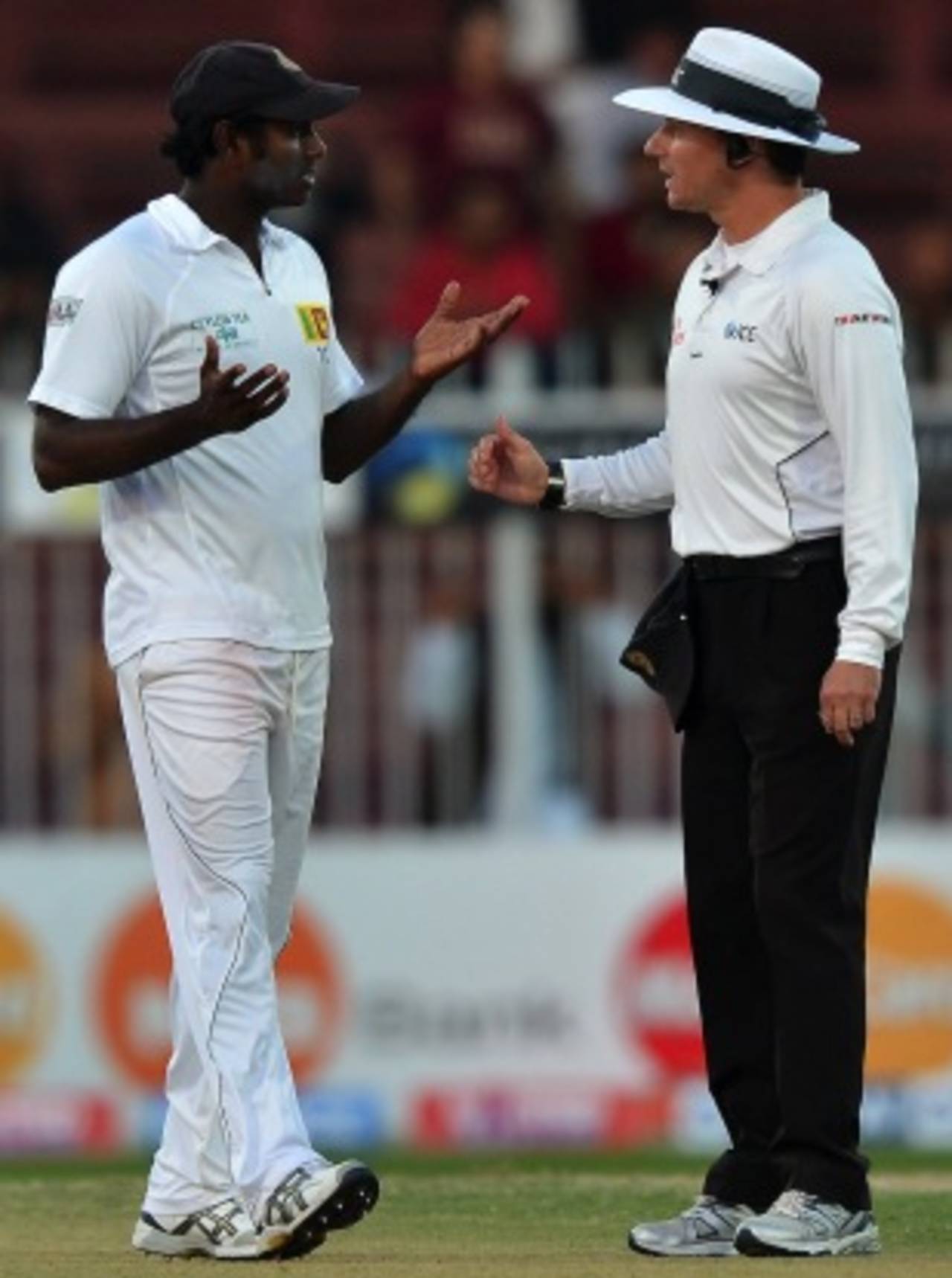On the fourth evening of the third Test, Sri Lanka
spurned the chance to press their advantage and crawled, bat in hand, slighting spectators, opponents, and in turn, the game itself. Before the last day's play was done, cricket had bit back, bloodied Sri Lanka to mindlessness, then left them for dead in the gloom. The team did not just lose a Test match in Sharjah, when they slowed play deliberately in the final overs, Sri Lanka lost the cricket world's respect.
Only Test cricket can take two-and-a-half hours of seeming idleness - a session where nothing appeared to happen - then retrospectively assign it haunting, definitive meaning. Among Sri Lanka's greatest successes had been their ability to subdue Saeed Ajmal, but on a surface that by Sri Lanka's own admission had not begun to take menacing turn, they lay voluntarily immobile as Ajmal put men around the bat and worked himself into one of his best spells in the series.
He dismissed Mahela Jayawardene that evening with one that ripped more than the batsman expected, and the following morning claimed the key wicket of Prasanna Jayawardene - Sri Lanka's top scorer in the innings (who, strangely enough, had also been their most positive batsman). Abdur Rehman had wheeled himself into a rhythm in the fourth day's evening session, when Sri Lanka had been only marginally less conservative. Together, the pair wiped out Sri Lanka's final four wickets on day five, leaving the door to victory ajar.
After Pakistan had run their opponents down, Sri Lanka's captain presented a weapons-grade denial that negativity did not cause their demise, suggesting instead that his batsmen should have been even more patient in their second innings. How Sri Lanka arrived at that conclusion is unclear, because six of their batsmen fell playing defensive strokes in the innings, and they had in fact lost two wickets in the session they had almost brought to a standstill, by scoring only 45.
If they truly believe they were not cautious enough, Sri Lanka are like a man who attempts to capture a castle by charging head first into its walls, then when he regains consciousness, determines he should have sprinted at the granite a little harder. The directive to revert to ultra-defence had actually come despite each of Sri Lanka's top eight batsmen having crossed fifty in the four innings prior to their second dig in Sharjah. The great peril in playing conservative cricket is that in two good sessions, Pakistan could lurch forward to obliterate four days of slow work from Sri Lanka.
If they required any evidence supporting the merits of positive cricket, they can look to their own meltdown in the field on day five. Boundaries early in Pakistan's innings prompted immediate deployments at the fence, and as Pakistan pressed harder and harder Sri Lanka prepared a feast of risk-free runs into the outfield. Almost three-quarters of Pakistan's 302 had come in singles, twos or threes.
As the final ten overs of the match approached, Sri Lanka spread the field even further, expecting a man nearing a scintillating ton and a captain who has only missed getting 50 in one innings in the series to slog one brainlessly to their outfielders. They needed less than a run-a-ball. Pakistan were having one of their superhuman days, but Sri Lanka felt they would suddenly begin batting like children. All nine fielders were routinely placed on the fence for Misbah-ul-Haq, and possessed of sound mind, Misbah did not take the ludicrous bait. He hit out hard, attempting to pierce the gaps, but he never put the ball long enough in the air to risk his wicket, because every time he got bat to ball, he was guaranteed at least one run.
"We wanted to get a wicket in that period," the Sri Lanka captain said after the match. "The ball was a bit old and also reversing a little bit. We actually knew in the last ten overs that they would go for the big shots. Even when we had our nine fielders down at the boundary, they still went for it. We wanted to get a wicket and when the newcomer comes in, to sort of bring in the field and put pressure on. They were going to go for it and it was getting dark. That's why we had the fielders out."
No neutral fan of cricket could have barracked for Sri Lanka on the fifth evening. On social media, the reactions of Sri Lanka's own supporters turned from disappointment to anger to disgust, before reaching the consensus that this was Sri Lanka's most craven showing in the professional era. If their captain's comments after the match can be taken at face value, the team remains staggeringly out of touch not only with the spirit of their sport, but the with will of the fans who sustain it.
After the scheduled finish time of 5:30 pm had passed and it became clear that only bad light could halt Pakistan, Sri Lanka's fielders began complaining they could not pick up the red ball under lights. When the winning run was hit, a pair of senior players went first to gripe to the umpire instead of shaking hands with the deserved victors, and then, Sri Lanka's cowardice was complete.
Andrew Fidel Fernando is ESPNcricinfo's Sri Lanka correspondent. He tweets here
